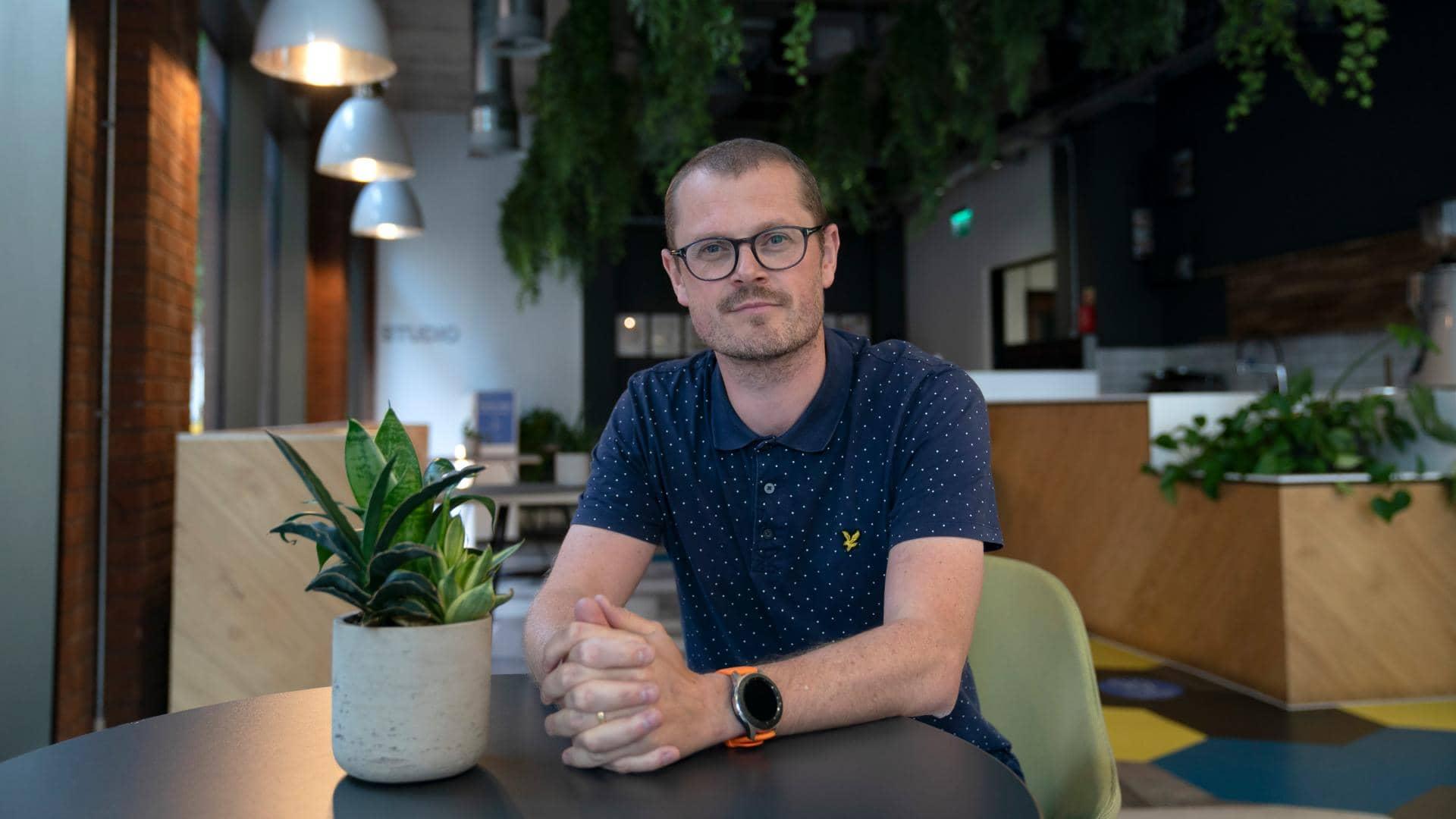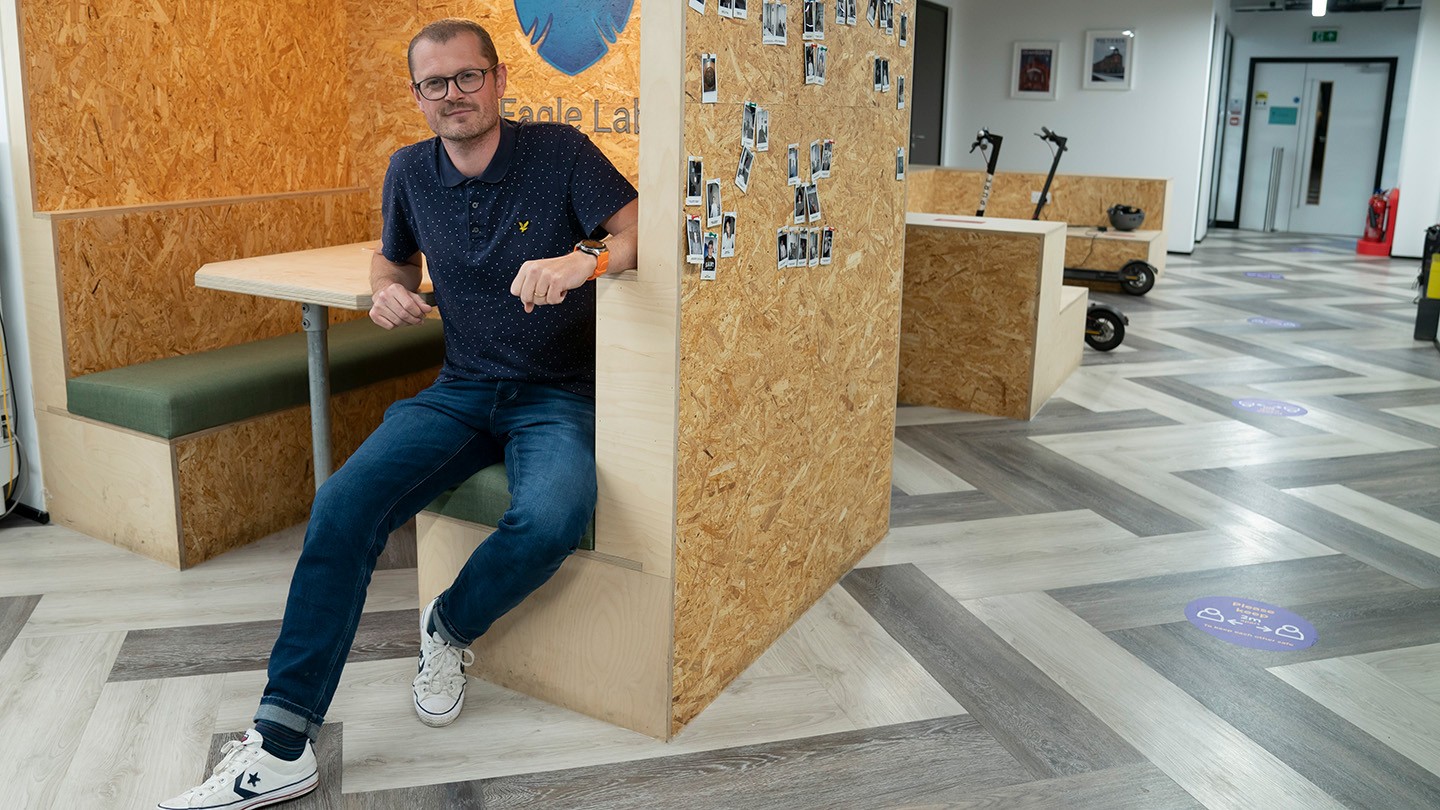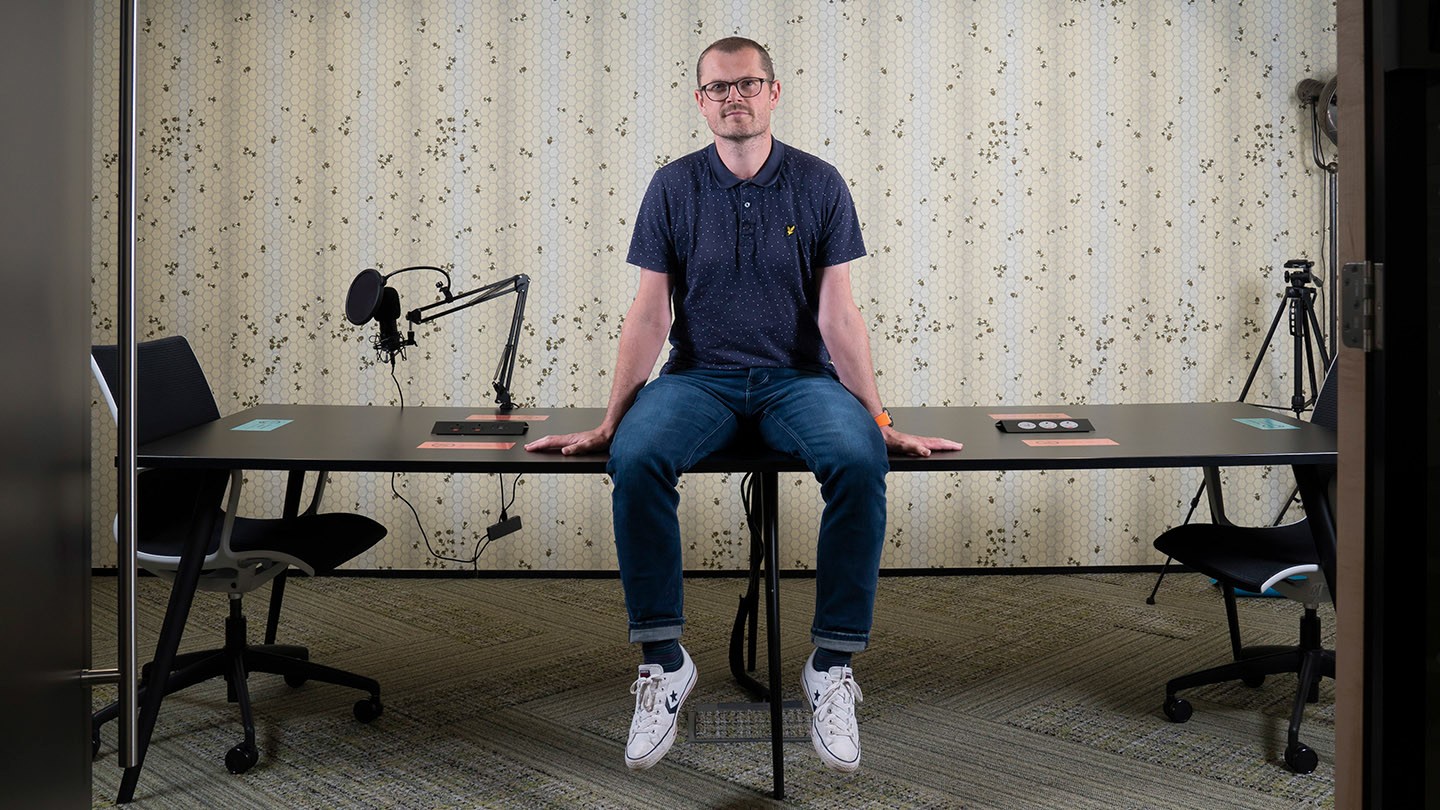
Innovation
“During the pandemic we’ve seen step changes in problems – but also in solutions”
The human connections that drive startup innovation have become more difficult over the last few months. Jon Hope, Eagle Labs Director at Barclays Ventures, tells us how the bank’s entrepreneurial support platform has adapted during the coronavirus crisis – and how it is helping startups find solutions to the problems caused by the pandemic.
The age of self-isolation and social distancing has posed a distinct set of challenges for startups. New businesses that normally rely on connecting in person for everything from generating ideas to accessing funding and developing products are finding it harder to do so – marking a significant shift for entrepreneurs and the networks that support them.
“Startups are collaborative by nature, whether that’s working with their own teams, learning from other startups in an incubator space or because they’re speaking to investors or possible clients,” explains Jon Hope, Eagle Labs Director at Barclays Ventures.
“That human connectivity is super important. The pandemic has introduced barriers to that activity, which will ultimately have an impact on the pace of development, learning and investment.”
We see our role as going beyond financial support – our role is also to help startups connect, innovate and grow, so we need to provide a full package to help businesses achieve that
Eagle Labs Director at Barclays Ventures

Jon Hope says the Eagle Labs have adapted to provide more virtual help to businesses during the pandemic.
In his role, Hope oversees a network of Eagle Labs which counts 25 different locations across the UK. These Barclays-run business incubators offer business help and support to around 550 startups and 2,500 co-workers across the country. Through accelerators, events and resources, the network aims to boost early-stage businesses, backing the British economy and driving innovation in the process.
But when the UK went into lockdown in March, the physical workspace hubs – with their capacity to help founders share opinions and promote a culture of innovation – were forced to close their doors.
Business help for startups during COVID-19
“We had to very quickly shift all our activity from in-person to digital or virtual,” says Hope. The network already provided online resources like a Funding Readiness Programme to help entrepreneurs understand the fundraising landscape, but the team now added a new series of online materials and virtual events.
These included giving high growth businesses detailed information about COVID-specific finance options such as CBILS, Future Fund and Bounce Back Loans – essential at a time when many were facing cashflow challenges.
Hope says it was also crucial for Eagle Labs to also boost non-financial forms of business support during the crisis. “Finance is a common challenge that startups face – but so is access to talent, access to new customers and access to new markets,” Hope says. “We see our role as going beyond that – our role is also to help startups connect, innovate and grow, so we need to provide a full package to help businesses achieve that.”
The Labs have continued to run a programme that offers tech startups insight into raising capital in Silicon Valley, albeit virtually. Hope also highlights a partnership with the work placement platform Workfinder, which is helping talented students find placements in the startup community – and providing startups with much-needed support in the process.
How startups are finding solutions
Looking to the future, Hope says entrepreneurs will be crucial to the UK’s economic recovery: “Startups are vital at all times – they create innovations, attract investment and create new jobs and economic growth. There are going to be some challenging times post-pandemic, so we need to ensure it’s a sector we’re supporting really well.”

We’re moving back to previous ways of working – but one of the positives of the shift to virtual is it gives us alternative ways we can support and engage our ecosystems – and importantly, reach a much larger audience than we can through a physical network alone
Eagle Labs Director at Barclays Ventures
He adds that the innovative thinking that is at the heart of the entrepreneurial ecosystem will help solve other problems that have been highlighted by the coronavirus crisis, across a range of industries.
“A common mantra in the startup world is ‘Fall in love with your customers’ problems’,” he explains. “The pandemic has created a lot of new problems and amplified existing ones – not just from the health and wellbeing perspective but also in the way businesses operate.
“The change that has impacted our lives over the last four to five months is possibly the greatest a generation has ever seen at any one point in time. The way in which we can best adapt to that change is through using and delivering new technologies and innovations. Before the pandemic, we often saw gradual change. During the pandemic, we’ve seen step changes in problems – but also in solutions.”
Hope cites healthtech startup ElectronRx, a Cambridge Eagle Lab member, which has used mobile sensor technology to track blood oxygen levels in patients. Another Eagle Lab member from Cardiff, Yoello, has developed a digital system to support businesses in the hospitality and leisure sector, allowing diners to order food and drinks using a QR code, then pay online.
Although 22 of the Eagle Labs workspaces recently reopened, the team hopes to integrate the digital solutions put in place during the pandemic into the network moving forward.
“We’re moving back to previous ways of working – but one of the positives is that the shift to virtual gives us alternative ways we can support and engage our ecosystems – and importantly, reach a much larger audience than we can through a physical network alone.”
It is with this in mind that Hope encourages early-stage founders not to be put off by current challenges facing businesses: “Now is as good a time as ever.”